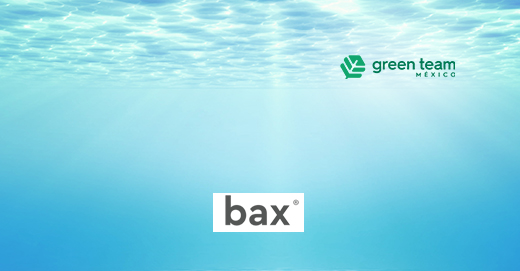![]()
Without immediate change by companies, societies, and governments worldwide, the amount of plastic entering the oceans will triple by 2040. This equates to 50 kg of plastic per meter of coastline worldwide, according to the study ‘Breaking the Plastic Wave’ by Pew Charitable Trusts and SYSTEMIC. This example is one of many compelling reasons to shift not only consumption habits but also the decisions made by governments in all countries and to increase sustainability objectives for all companies. In this article, we will explore what needs to be driven and the plan in place to avoid this catastrophic outcome.
Global systemic change refers to the shift in the management, production, and disposal of plastics by governments, companies, and civil society worldwide. If all current government and private sector goals are achieved, plastic entering the ocean will only decrease by 7% by 2040. This percentage could be as high as 80% by immediately implementing the following eight interventions in every country in the world:
- Reducing plastic consumption to generate only one-third of projected plastic waste.
- Replacing plastic with compostable plastic alternatives, representing one-sixth of the projected plastic generation.
- Designing recyclable products and packaging to increase the current 24% recyclable plastic generation to 54%.
- Increasing plastic waste collection by 50% in rural areas and 90% in urban areas.
- Doubling the global recycling capacity to 86 million tons per year.
- Developing the conversion of plastic into other plastic materials, up to 13 million metric tons per year.
- Environmentally safely disposing of the 23% of plastics that cannot be economically recycled.
- Reducing the export of waste to other countries where it won’t be adequately collected by up to 90%.
In the primary microplastics sector, the dumping of 1 to 8 million tons per year is estimated, originating from tire dust, fabrics, personal hygiene products, and pellets.
What Would Be the Effect?
It would create 700,000 formal jobs in medium and low-income countries to meet the demand for new plastic services. This would provide better social recognition for the 11 million informal waste pickers worldwide, who are currently underpaid and poorly recognized, despite being responsible for recycling 60% of the world’s plastics.
By recycling a higher percentage of plastics, it would actively benefit people’s health by eliminating the burning of 109 million tons per year, resulting in fewer airborne particles, carcinogens, and toxins.
It is undoubtedly a critical moment to take action and demand changes in government and corporate objectives, as although 2040 may feel distant, it is an inevitable future. In the case of societies, bax® products made from Polivitalio® are revolutionizing the world, as they offer unparalleled advantages while maintaining people’s consumption habits. They are free of microplastics, including eco-friendly T-shirt bags, boutique bags, envelope bags, roll bags, pet waste bags, laundry bags, and even shrink film. They biodegrade faster than natural materials like an orange peel and paper, biodegrade in all environments, including landfills, the sea, freshwater, and anaerobic conditions, are water-soluble, and are certified compostable in both home and industrial compost according to European standard EN 13432 by DIN CERTCO, Berlin, Germany. They also comply with the circular economy scheme, meeting the needs of social, business, and government change to save our future.
If it’s bax®, it NEVER contaminates. Now available on Amazon.
Follow us on Medium, Youtube, Facebook, Linkedin, Instagram y TikTok.
#WithBaxLet’sSaveOurFuture

